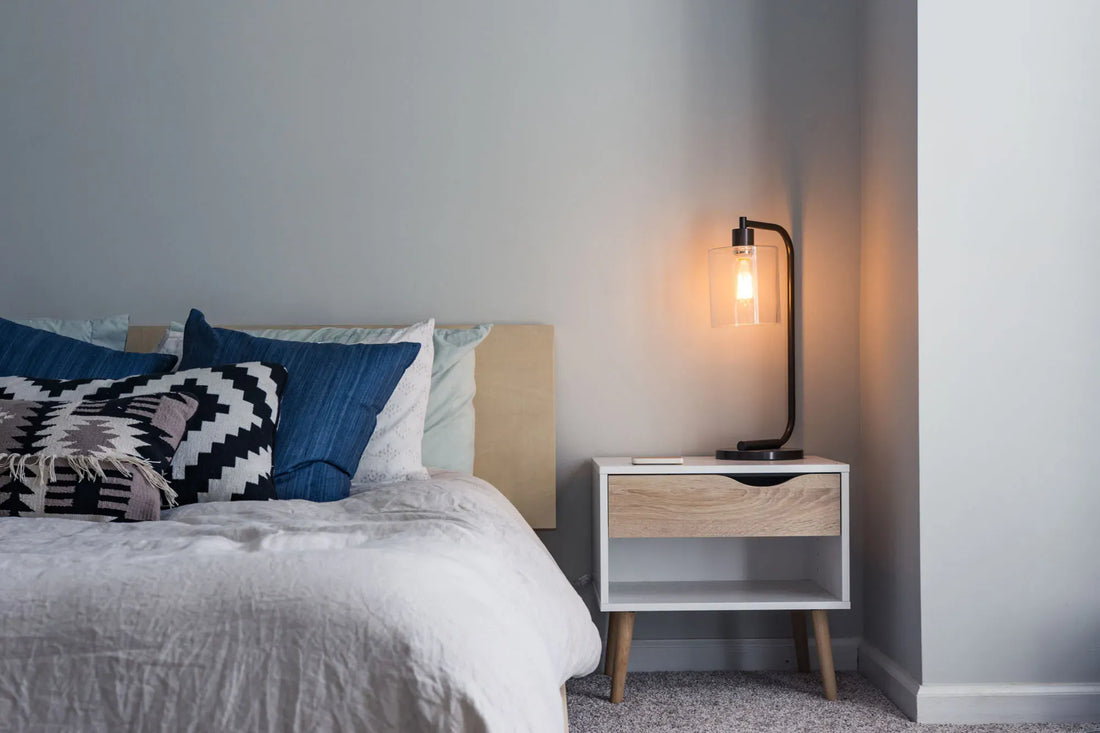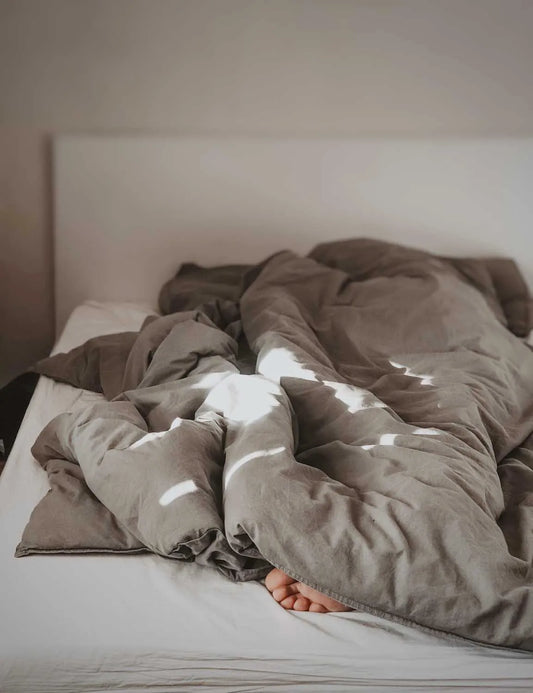Dive into the intriguing topic of how technology affects sleep as we explore the connection between digital devices and restful nights. At Remly Sleep, we're dedicated to leveraging research for product development, and The Dream Lab is our way of sharing the knowledge we gain with you.
The Impact of Technology on Sleep
Blue Light Exposure
One of the primary ways technology affects sleep is through blue light exposure. Digital devices, such as smartphones, tablets, and computers, emit short-wavelength blue light, which can disrupt our body's natural sleep-wake cycle. Exposure to blue light at night can suppress the production of melatonin, the hormone responsible for regulating sleep, leading to difficulties falling asleep and poor sleep quality as shown in this study. To combat the negative effects of blue light, consider using a sleep mask like the Remly Sleep Mask or wearing Remly 70% Blue Light Blockers during evening hours.
Sleep Disruption and Distractions
The constant availability of digital devices can result in an "always-on" mentality, making it difficult to unwind and relax before bed. The habitual use of technology before bedtime, such as scrolling through social media or watching videos, can cause mental stimulation and delay the onset of sleep as described in this research. Additionally, notifications and messages can interrupt sleep, causing frequent awakenings and disrupting the sleep cycle as demonstrated in this study. Understanding the importance of circadian rhythm and establishing a consistent sleep schedule can help reduce the impact of these disruptions.
Tech-Induced Stress and Anxiety
The overuse of technology can contribute to increased stress and anxiety levels, negatively affecting sleep quality. Constantly checking emails or engaging in work-related tasks on digital devices can make it challenging to disconnect and relax, potentially leading to sleep disturbances. It's essential to recognize the impact of sleep on mental health and implement strategies to manage stress and anxiety for better sleep.
Practical Tips for Minimizing Technology's Impact on Sleep
1. Create a Tech-Free Bedroom
Establishing a technology-free zone in your bedroom can help promote a relaxing sleep environment. Consider removing all electronic devices, including televisions, computers, and smartphones, to minimize distractions and blue light exposure.
2. Establish a Digital Curfew
Implementing a digital curfew at least one hour before bedtime allows your brain to wind down and prepare for sleep. This practice can help reduce blue light exposure and prevent stimulating activities that interfere with sleep onset. Consider using this time to engage in relaxing activities such as reading a book, taking a warm bath, or practicing mindfulness.
3. Use Blue Light Filters
Many digital devices have built-in settings or apps that filter out blue light. Using these features, especially during evening hours, can help mitigate the negative effects of blue light on sleep. Alternatively, you can wear blue light blocking glasses, such as Remly 70% Blue Light Blockers, to minimize exposure and protect your eyes.
4. Turn Off Notifications
Silencing or disabling notifications on your digital devices can reduce the chances of sleep interruptions. Consider setting your devices to "Do Not Disturb" or "Airplane Mode" during bedtime to avoid being disturbed by incoming messages or alerts. Ensuring a peaceful environment can also help improve the quality of light sleep, deep sleep and REM sleep, both of which are crucial for overall well-being.
5. Practice Relaxation Techniques
Incorporating relaxation techniques, such as meditation, deep breathing exercises, or progressive muscle relaxation, can help reduce stress and anxiety related to technology use. Practicing these methods before bedtime can improve sleep quality and help you unwind from the day's activities. Additionally, incorporating power naps during the day can help alleviate the impact of poor nighttime sleep.
The Importance of Sleep Hygiene
In addition to managing technology use, maintaining proper sleep hygiene is essential for promoting restful sleep. To improve your sleep habits, consider implementing the following strategies:
- Establish a consistent sleep schedule
- Create a bedtime routine
- Make your sleep environment comfortable and conducive to rest
- Limit caffeine and alcohol intake, especially close to bedtime
- Engage in regular physical activity
For more tips on improving your sleep hygiene, visit 10 Essential Tips for Better Sleep Hygiene.
Conclusion: Technology has undoubtedly become an integral part of our daily lives, but it's essential to recognize its potential impact on sleep. By implementing practical strategies to minimize technology's negative effects and prioritizing sleep hygiene, you can promote restful nights and better well-being. It's important to not only understand the risks associated with excessive technology use but also proactively seek solutions to mitigate them. By doing so, you'll be taking essential steps towards achieving a healthier, more balanced lifestyle.
Concluding Thoughts
As technology continues to evolve and permeate our daily routines, it is crucial to stay vigilant about its potential impact on our sleep and overall well-being. By being mindful of technology's effects on sleep and taking actionable steps to minimize its negative consequences, we can embrace the benefits of technology while safeguarding our sleep health. After all, sleep is a vital component of our lives, and taking care of it should be a top priority.
Remember, a healthy sleep routine can lead to improvements in various aspects of your life, including mental and physical health, productivity, and overall happiness. By incorporating practical strategies, such as creating a tech-free bedroom, establishing a digital curfew, using blue light filters, turning off notifications, and practicing relaxation techniques, you'll be setting yourself up for success in both sleep and life.
Thank you for exploring with us at The Dream Lab. Remly Sleep is on a mission to make you sleep better by sharing the latest sleep research and incorporating this knowledge into our innovative products. We're excited to journey together and discover more insights on sleep and well-being.




